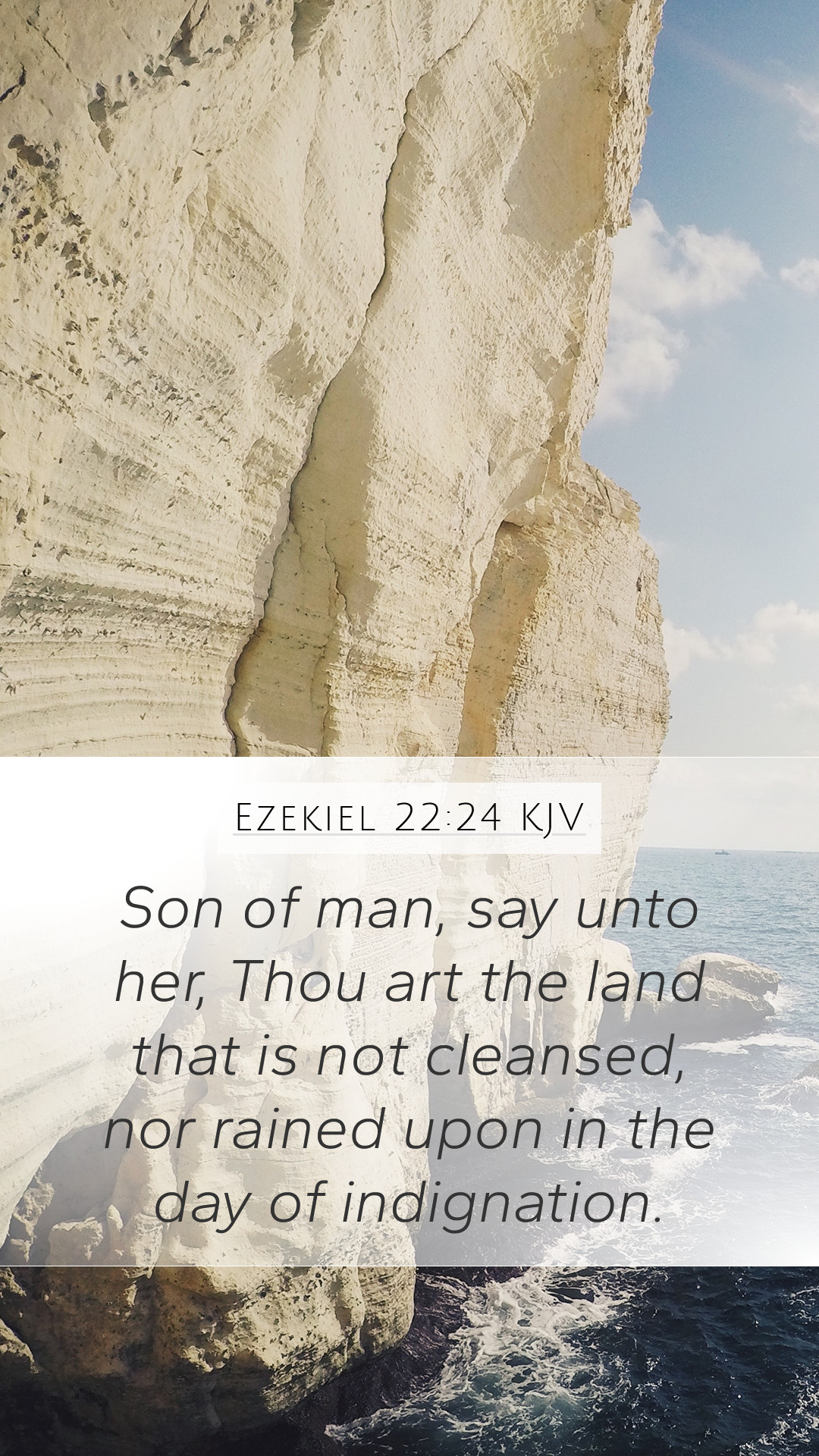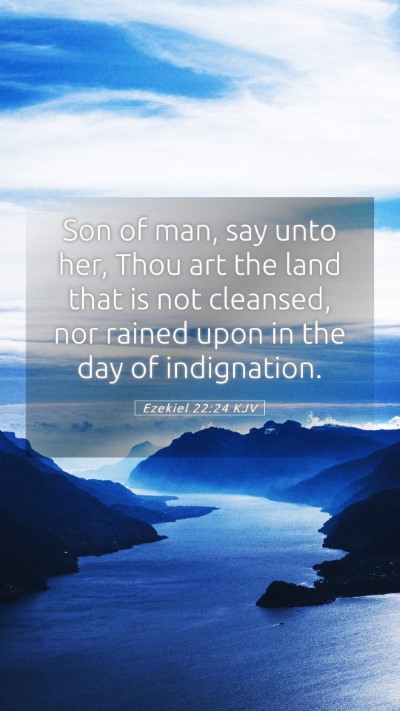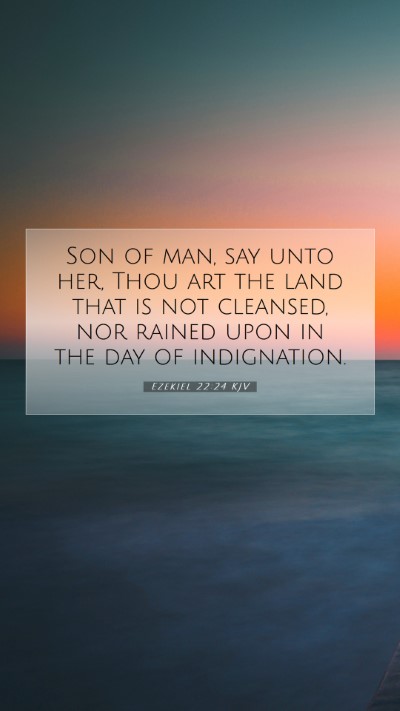Ezekiel 22:24 Bible Verse Meaning and Interpretation
Verse: "Son of man, say unto her, Thou art the land that is not cleansed, nor reigned upon in the day of indignation." (Ezekiel 22:24)
This verse is a poignant declaration by God through Ezekiel, emphasizing the spiritual desolation and moral corruption of Jerusalem. Commentaries provide deep insights into its implications for understanding God's judgment and the condition of His people.
Understanding Ezekiel 22:24
The phrase "thou art the land that is not cleansed" suggests a state of impurity, both physically and spiritually, indicating a community that has strayed from God's commands. This reflects on the broader themes within the Book of Ezekiel, where divine judgment is frequently depicted as a response to unfaithfulness.
Commentary Insights
- Matthew Henry: Henry emphasizes the cultural and religious failings of Jerusalem, highlighting that the lack of spiritual cleansing reflects God's displeasure. The 'day of indignation' is interpreted as a time when God's anger is expressed through judgment.
- Albert Barnes: Barnes elaborates on the metaphor of land, explaining that it symbolizes the people of Israel who are subject not only to divine discipline but also have a responsibility to seek restoration. He points out that spiritual neglect results in widespread societal failure.
- Adam Clarke: Clarke suggests that the unclean state of the land correlates with moral decay, warning against complacency in spiritual issues. He connects the judgment of God to the inevitable consequences of sin, which envelops a nation when it turns from righteousness.
Theological Implications
The theological implications of Ezekiel 22:24 urge believers to consider the seriousness of disobedience to God. The verse can be likened to a spiritual diagnostic tool, revealing the state of a community’s relationship with God.
In studying this verse, one might ponder questions like:
- What does it mean to be spiritually cleansed?
- How does God's indignation manifest in the lives of the unrepentant?
- Can a nation or community recover from such judgment?
Application of the Verse
Applying the lessons from Ezekiel 22:24 to daily life involves recognizing the importance of collective repentance and striving for spiritual integrity within communities. Spiritual cleansing can only occur through acknowledging wrongdoing and seeking God's mercy.
Related Bible Cross References
- Ezekiel 36:25 - "Then will I sprinkle clean water upon you, and ye shall be clean..."
- Isaiah 1:18 - "Come now, and let us reason together, saith the LORD..."
- 2 Chronicles 7:14 - "If my people, which are called by my name, shall humble themselves..."
In conclusion, Ezekiel 22:24 serves as a critical reminder of the importance of spiritual vigilance and the communal aspect of faith. Understanding Scripture through such verses enriches Bible study insights, encouraging deeper reflections on personal and communal righteousness.
Further Study and Resources
For those interested in diving deeper into Bible verse meanings and interpretations, consider exploring:
- Online Bible study platforms that offer interactive resources.
- Commentaries and devotionals designed for personal or group study.
- Bible study guides focused on Old Testament texts and their implications for modern faith.
Understanding difficult Bible passages like Ezekiel 22:24 enhances our grasp of divine justice and mercy. It challenges us to reflect on our spiritual state and the possibility of renewal through repentance.


